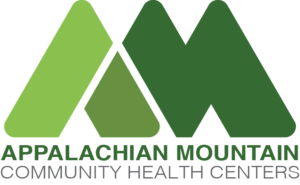By Dr. Michael Murray, RHA Medical Director
The RHA Behavioral Health Assertive Community Treatment Team (ACTT) is a service that employs a team of mental health professionals to offer a full range of support services to people with serious behavioral health needs. ACTT promotes rehabilitation and independence by teaching people the coping skills needed to safely and productively live in their own communities, engaging them in normal daily routines and healthy social interactions. People receiving ACTT services often experience significant reductions in crisis situations such as homelessness, incarceration or repeated hospitalizations.
In 2016, RHA’s Asheville ACT Team (located at Asheville’s C3 Comprehensive Care Center) participated in a unique grant-funded project. This project involved the partnership of our ACT Team with a local federally qualified health clinic (FQHC) primary care provider. The model, which we called the “ACTT Plus” program, was developed to improve the coordination of care among some of our most severely ill individuals receiving ACTT services. Indeed, our ACT Team in Asheville has historically focused on the homeless population which had a high proportion of individuals without a primary care home.
 The original pilot involved having a family nurse practitioner, Jacklyn Bandell, of the Appalachian Mountain Community Health Center’s Dale Fell Health Clinic, reach out to individuals on our ACT Team in concert with our ACTT nurses, to address primary care concerns among the patient population and provide these individuals with a primary care home — sometimes for the first time in years. Over the course of the first year of the project, 70 individuals on our 100+ patient ACT Team gained access to primary care, many of them for the first time in decades.
The original pilot involved having a family nurse practitioner, Jacklyn Bandell, of the Appalachian Mountain Community Health Center’s Dale Fell Health Clinic, reach out to individuals on our ACT Team in concert with our ACTT nurses, to address primary care concerns among the patient population and provide these individuals with a primary care home — sometimes for the first time in years. Over the course of the first year of the project, 70 individuals on our 100+ patient ACT Team gained access to primary care, many of them for the first time in decades.
Following the successful completion of the grant-funded project, the program has expanded to provide ACTT Plus services to multiple ACT Teams in the community, including an ongoing presence with our Asheville ACT Team. While the original program has evolved and the current setup is significantly different from the original program, a weekly outreach component remains a key part of the program.
A unique aspect of the program has been the ability to collaborate with primary care to an extent that is typically impossible within the framework of our current medical model. We hope that the evidence of this model’s impact will be compelling enough to expand it beyond our own community.
